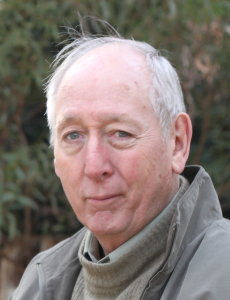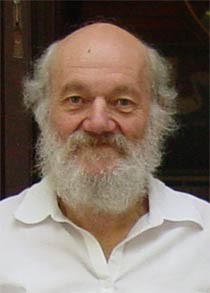ASPS Life Membership
Life Membership of the Australian Society of Plant Scientists recognises an outstanding and sustained contribution to the Society by a longstanding ASPS member who, through their professional activities, has substantially enhanced the international profile of Australian plant science research.
Nominations for ASPS Life Membership can be made at anytime to the Honorary Secretary. A one-page summary addressing the above criteria must accompany the nomination. The Council Executive is charged with the responsibility of making a determination on submitted nominations and may seek peer advice.
Current ASPS Life Members are:
-
Hatch, Dr Marshall (Hal) D
Australian National UniversityHal Hatch graduated from Sydney University, B.Sc (Hon) in 1954 and subsequently completed a PhD at the same institution while working at CSIRO Plant Physiology Unit in Sydney, graduating in 1959. Hal traveled to the USA at the end of his PhD to post-doc in the Biochemistry Department at University of California then returned to Australia in 1961 to take up a position as Head of the Biochemistry Section at Colonial Sugar Refineries (CSR) David North Laboratories Brisbane. After a brief period in the University of Queensland and a 2 year return to CSR, Hal joined CSIRO Plant Industry Canberra in 1970 as a Chief Research Scientist and remained in that position until his retirement in 1997.
Hal’s scientific focus has primarily been on C4 photosynthesis, having been instrumental in the discovery of this pathway with his colleague Roger Slack, reported in their papers between 1966 and 1970. He has continued to be a major driving force in C4 photosynthesis research, publishing seminal papers on the biochemistry and physiology of the C4 photosynthetic mechanism (totaling more than 140 papers). In addition to his elucidation of the basic biochemical pathway of C4, including the 3 decarboxylation types, Hal has delved into the physics of the C4 concentrating mechanism, its efficiency and the interaction of this photosynthetic mechanism with the environment through enzyme regulation. Much of this work is now described in text books.
Hal is one of the most internationally recognized Australian plant scientists, having been awarded the Royal Society of NSW Clarke Medal, the Lemberg Medal (Australian Biochemical Soc), the Charles Kettering Award (American Soc Plant Physiologists), Rank Prize (J. Arthur Rank Group, UK), and the International Prize for Biology (Japan Soc Promotion of Science) and the Order of Australia. He is a Fellow of the Australian Academy of Science, the Royal Society of the UK, and a Foreign Associate of the US National Academy of Science. Hal has served on many editorial panels for international scientific journals including Australian Journal of Plant Physiology, Archives of Biochemistry and Biophysics, Trends in Biochemical Sciences and Proceedings of the Royal Society. Hal is also a past president of ASPS, at that time the Australian Society of Plant Physiologists.Email: halhatch@bigpond.comResearch interests: Biochemistry and physiology of C4 photosynthesis -
Osmond, Professor Charles (Barry) B
Australian National UniversityBarry Osmond (BSc, MSc New England; PhD Adelaide) is an Australian plant biologist well known for his studies of the physiology of photosynthesis. His career was stimulated by research opportunities at the Institute of Advanced Studies, Australian National University, interspersed with senior appointments in the United States (notably Duke University) and research collaborations in the United Kingdom at Cambridge and Sheffield and in Darmstadt, Göttingen and Jülich in Germany. Interests have ranged from C4 photosynthesis to CAM, photoprotection and photoinhibition.

His research on plant responses to excess light was supported by the US Department of Energy and other agencies, and by a Humboldt Research Award from the Alexander von Humboldt Foundation. Barry’s last appointment before retirement was as President and Director of Research at Columbia University’s Biosphere 2 Center, a unique, visionary venture in experimental climate change science.
Retired since 2003, he is retains honorary fellow appointments in ANU and the University of Wollongong where is pursuing nonintrusive methods for ‘near remote sensing’ of photosynthesis using FRRF/LIFT (fast repetition rate fluorescence/light induced fluorescence transient) technologies that are well suited to capturing photosynthesis during sun flecks on old leaves in the shade.
Osmond CB (2014) Our eclectic adventures in the slower eras of photosynthesis: from New England down under to Biosphere 2 and beyond. Annual Review of Plant Biology 65: 1-32Email: barry.osmond@anu.edu.au
Research interests: Cell/Tissue Physiology, Environment & Ecophysiology -
Raven, John
University of Dundee, Dundee, UKJohn
 Raven has researched into plants and algae since 1963, first in Cambridge and from 1971 in Dundee. He formally retired in 2008 and is now an Emeritus Professor at the University of Dundee and an Honorary Research Fellow at the James Hutton Institute, Dundee, He is still in science, with frequent research visits to Australia since and past and/or present collaborations with Australia-based scientists in UQ, UTS, Monash University, UTas, ANU, University of Adelaide and UWA. John is an Adjunct Professor at UWA and a Visiting Professor at UTS. His work encompasses acid-base regulation, including the movement of weak electrolytes such as IAA and ABA, and the mechanisms of acquisition and assimilation of photosynthetically active radiation, carbon, nitrogen, phosphorus and iron and the effectiveness of use of these resource in plants and, especially, algae. John also has interests in palaeoecophysiology and astrobiology. He is a fellow of the Royal Societies of Edinburgh and of London and of the Royal Society of Biology, and has an Honorary PhD from the University of Umeå. He holds an Award of Excellence from the Phycological Society of America, and was recognised as a Highly Cited Scientist by ISI in 2002. John (with Paul Falkowski) received the Prescott Prize of the Phycological Society of America, is an Honorary Life Member of the British Phycological Society, a Fellow of the Botanical Society of Scotland, a Fellow of the Marine Biological Association and a Corresponding Member of the Botanical Society of America.Email: j.a.raven@dundee.ac.ukResearch interests:Website: http://www.lifesci.dundee.ac.uk/people/john-raven
Raven has researched into plants and algae since 1963, first in Cambridge and from 1971 in Dundee. He formally retired in 2008 and is now an Emeritus Professor at the University of Dundee and an Honorary Research Fellow at the James Hutton Institute, Dundee, He is still in science, with frequent research visits to Australia since and past and/or present collaborations with Australia-based scientists in UQ, UTS, Monash University, UTas, ANU, University of Adelaide and UWA. John is an Adjunct Professor at UWA and a Visiting Professor at UTS. His work encompasses acid-base regulation, including the movement of weak electrolytes such as IAA and ABA, and the mechanisms of acquisition and assimilation of photosynthetically active radiation, carbon, nitrogen, phosphorus and iron and the effectiveness of use of these resource in plants and, especially, algae. John also has interests in palaeoecophysiology and astrobiology. He is a fellow of the Royal Societies of Edinburgh and of London and of the Royal Society of Biology, and has an Honorary PhD from the University of Umeå. He holds an Award of Excellence from the Phycological Society of America, and was recognised as a Highly Cited Scientist by ISI in 2002. John (with Paul Falkowski) received the Prescott Prize of the Phycological Society of America, is an Honorary Life Member of the British Phycological Society, a Fellow of the Botanical Society of Scotland, a Fellow of the Marine Biological Association and a Corresponding Member of the Botanical Society of America.Email: j.a.raven@dundee.ac.ukResearch interests:Website: http://www.lifesci.dundee.ac.uk/people/john-raven -
New Item
ADD_CONTENT_HERE
